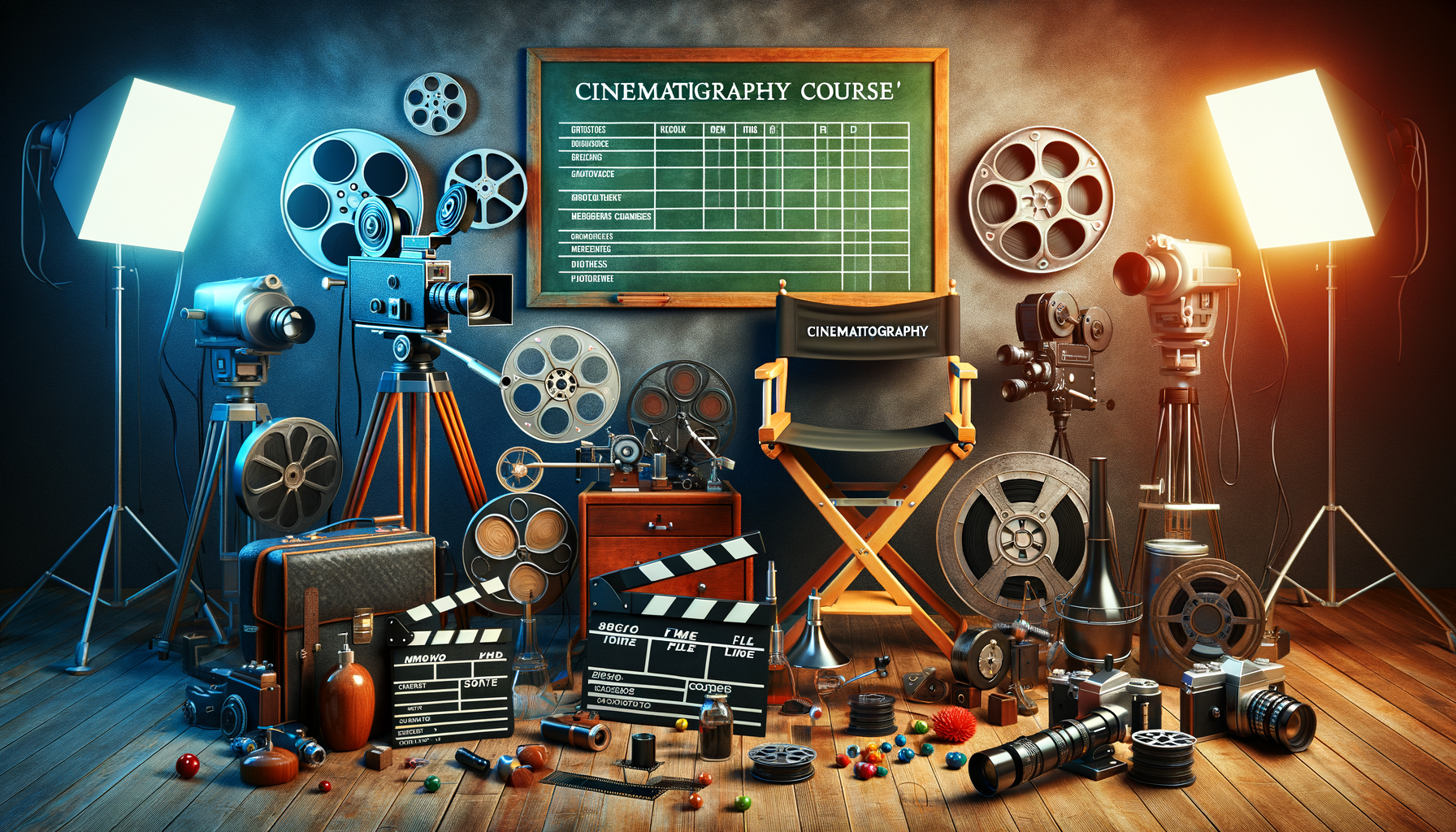
Start Your Film Career with Courses in the USA
Understanding the Role of Cinematography in Film
Cinematography is more than just capturing moving images; it is the art and craft of visual storytelling. This discipline involves choosing the right camera angles, lighting, and movements to convey emotions and enhance the narrative. A cinematographer, also known as the director of photography, collaborates closely with the director to bring the script to life visually. This collaboration is vital as it ensures that the film’s visual style aligns with its thematic essence.
For those considering a career in cinematography, understanding the role’s multifaceted nature is crucial. It requires a blend of technical skills and artistic vision. Cinematographers must be adept in handling various cameras and lenses, understanding lighting setups, and utilizing post-production techniques to achieve the desired look. Moreover, they need to be storytellers who can interpret a director’s vision and translate it into compelling visuals.
In the USA, the film industry is vast, offering numerous opportunities for aspiring cinematographers. From independent films to big-budget Hollywood productions, the demand for skilled cinematographers is ever-growing. By enrolling in a cinematography course, students can gain the foundational knowledge and practical experience needed to excel in this competitive field.
Exploring Cinematography Courses: What to Expect
Cinematography courses are designed to provide students with a comprehensive understanding of the field. These programs typically cover a wide range of topics, including:
- Camera Operations: Understanding different types of cameras and their functions.
- Lighting Techniques: Learning how to manipulate light to create mood and atmosphere.
- Composition and Framing: Mastering the art of composing shots for maximum impact.
- Color Theory: Exploring how color influences mood and storytelling.
- Post-Production: Gaining skills in editing and color grading to enhance the final product.
In addition to theoretical knowledge, these courses often include practical workshops and projects. Students have the opportunity to work on real film sets, collaborating with peers and industry professionals. This hands-on experience is invaluable as it allows students to apply what they’ve learned in a real-world context.
Furthermore, many programs offer networking opportunities with industry insiders, guest lectures from renowned cinematographers, and internships with production companies. These experiences not only enrich the learning process but also provide students with connections that can be vital for their future careers.
Advantages of Pursuing Cinematography Courses in the USA
The USA is home to some of the most prestigious film schools and institutions, making it an ideal destination for aspiring cinematographers. By pursuing a cinematography course in the USA, students can benefit from:
- Access to State-of-the-Art Facilities: Many film schools are equipped with cutting-edge technology and resources.
- Exposure to Diverse Film Cultures: The USA’s film industry is diverse, offering exposure to various styles and genres.
- Opportunities for Collaboration: Students can collaborate with peers from different backgrounds, enriching their creative process.
- Proximity to Major Film Studios: Being close to Hollywood and other major film hubs provides students with increased opportunities for internships and job placements.
Moreover, the USA’s vibrant film community offers numerous festivals, workshops, and events where students can showcase their work and gain recognition. These platforms are crucial for building a portfolio and establishing a presence in the industry.
Ultimately, pursuing a cinematography course in the USA can be a transformative experience, equipping students with the skills, knowledge, and connections needed to succeed in the film industry. Whether you aspire to work on blockbuster films or independent projects, these courses provide a solid foundation for a successful career in cinematography.


